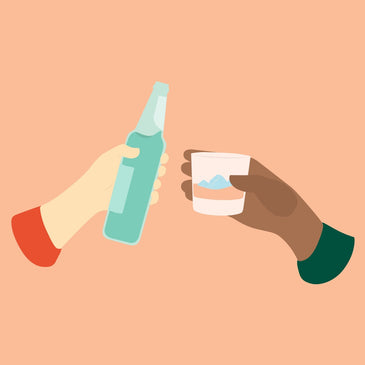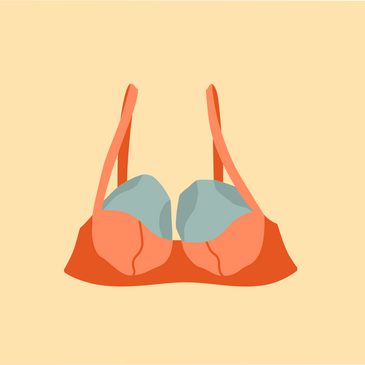Bodily does not provide medical advice, diagnosis, or treatment. The resources on our website are provided for informational purposes only. You should always consult with a healthcare professional regarding any medical diagnoses or treatment options.
What should you consider?
Here’s the deal: It's fine to consume a moderate amount of caffeine (about 300 mg, or two to three cups of coffee) when you’re breastfeeding. Caffeine does pass to breastfeeding babies in breast milk, but in low-enough amounts that the American Academy of Pediatrics and CDC say it’s fine, and that typically only excessive caffeine consumption – 10 or more cups a day – has produced a noticeable effect on infants.
What you need to know:
Infants only get, at most, 1.5% of the caffeine the parent ingests, but infants who are preterm are particularly sensitive, since they tend to metabolize caffeine more slowly. Typically, by the time a baby reaches 6 months, their bodies process caffeine as efficiently as adults do.
Caffeine also dehydrates the body — and, in turn, decreases milk supply — so it’s important to drink plenty of water as a breastfeeding parent (which is always best practice, but especially if you have caffeine!).
How can I measure my caffeine intake?
You might want to think about how much caffeine you ingest on a daily basis – whether you’re drinking coffee, tea or soda, some brands have significantly more caffeine than others. (This comparison of popular drinks is a good reference.) It’s also worth taking a look at any supplements you may be taking which may have caffeine in them.
When should I be worried?
If you’re concerned about your caffeine intake and breastfeeding, the easiest thing to do is to cut back on your caffeine consumption or cut it out altogether. If you’re a regular caffeine drinker, you might go through withdrawal if you go cold turkey, so take it slowly or drink beverages with lower caffeine levels as you phase it out.
Observing your baby’s response to caffeine is something to think about. Some babies are more sensitive than others — if your baby becomes shaky, jittery, irritable or fussy, or doesn’t sleep well, you might want to consider cutting back your caffeine consumption. Things to watch for include:
- Trembling or jitteriness
- Irritability or restlessness
- Shorter naps or wakefulness at night
- Changes in nursing behavior like refusing the breast, nursing for shorter periods of time, or not seeming to nurse as well or efficiently
Infants generally tolerate caffeine better as they get older; if your baby is very sensitive to it when they’re younger, it may not be the same a month or two later. If you’re not sure about how your caffeine consumption is affecting baby, talk with your baby’s pediatrician.





